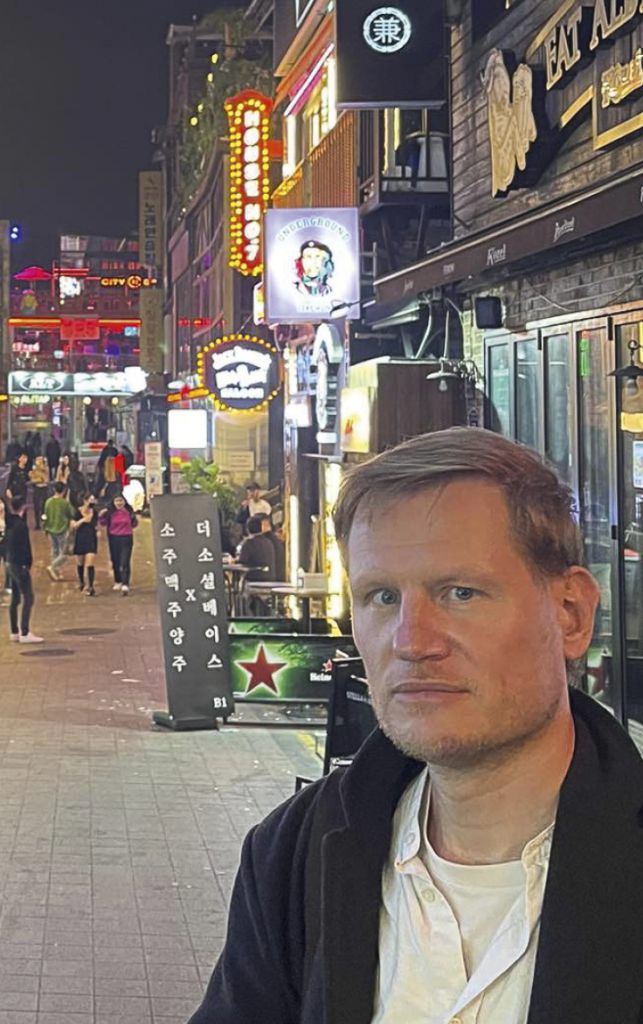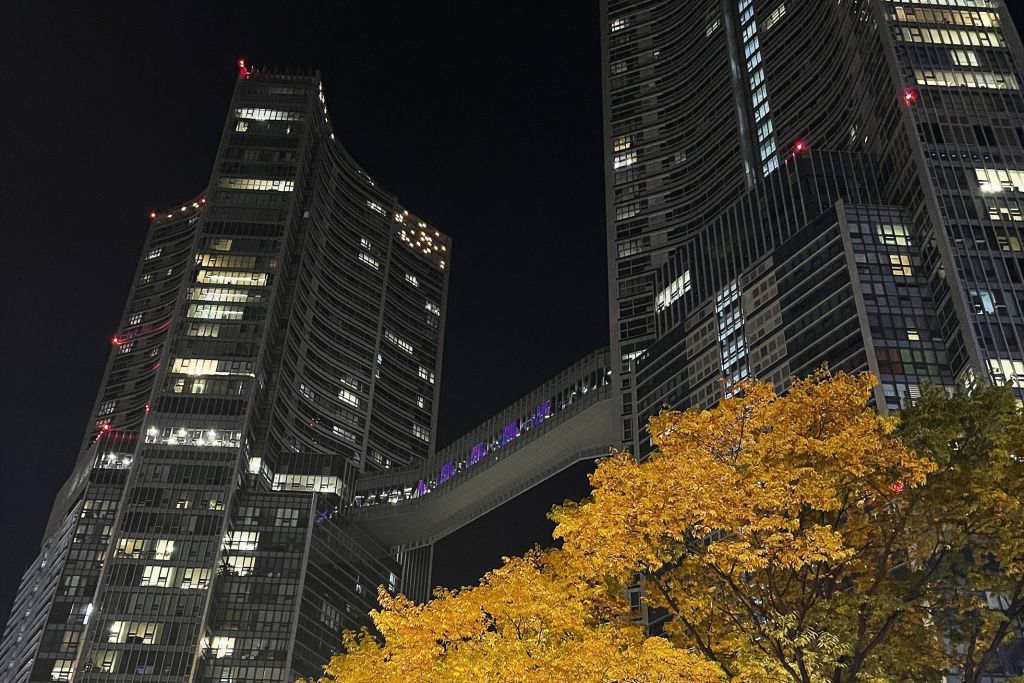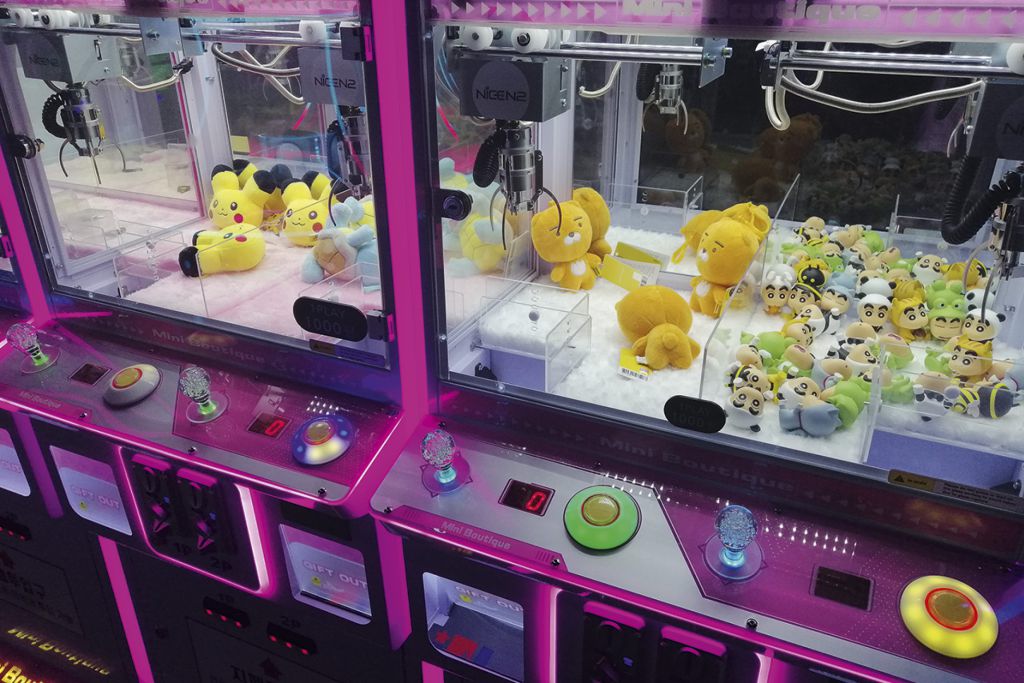Henning Backhaus, who studies directing at Film Academy Vienna, gives us an impression of his trip to South Korea’s Seoul International Extreme-Short Image & Film Festival (SESIFF).
On the plane to Seoul, those who reach into their seatback pockets to browse the movie offerings find a broad range of categories: action, drama, children’s movies, comedies … and K-movies. It’s with considerable self-confidence that South Korea has turned its domestic film industry into a trendy brand and a hugely successful export. By now, the wild genre mashups with which the South Koreans have upended international cinema have become universally familiar—with movies like Parasite, The Host, and Old Boy, and series like Squid Game and Itaewon Class, whose blockbuster status extends far beyond Asia.

The backbone of this success story is a national love of cinema, and South Koreans go in for domestically produced films and series in a big way. To the point that the monster from The Host was given a life-size monument in Seoul, while a cast bronze version of the romantic couple from the series Winter Sonata can be seen embracing on Nami Island. This degree of devotion is enough to leave German-speaking filmmakers feeling more than a bit wistful. But Austria and Germany, along with rural crime series and German “comedies”, are far away—and here, there are new things to discover.
The twelfth edition of the Seoul International Extreme-Short Image & Film Festival (SESIFF) has sent out its invitations, and among their recipients is a six-person film delegation from Vienna. The reason is 130 years of diplomatic relations between the two countries and the festival’s “Austria Focus” in 2022. Several short films from Film Academy Vienna (including Bato Nebo, Echthaar, and Fische) are to be screened as their own block, a master class with director Magdalena Chmielewska (Lullaby) is scheduled, and The Best Orchestra in the World will be shown as part of the opening event.

About that opening event: its epic! The giant, cupola-like hall is packed solid as if the pandemic had never occurred. A thunderous K-pop show (newest must-haves: fake nerd glasses and bulky trench coats) takes the stage followed by speeches, still more speeches, words of greeting from the district council chair (they have those in Seoul, too), and a welcoming address by the mayor. All this gives way to a painting competition awards ceremony for which 40 children suddenly appear onstage, after which the festival is officially declared open with a shower of confetti before a two hour film screening begins.
In a certain sense, this fascinatingly diffuse happening foreshadows what we are to experience in Seoul during the next few days, all of which seems unbounded and subject to entirely opaque rules. Besides which, it’s impossible to move through one of Asia’s largest cities without an underlying sense of mild overload.
As it so often happens at film festivals, the nicest encounters take place on the fringes: meetings with Chung-Ang University’s film department, lots of meal invitations, and expeditions into the local nightlife. In the process, the films themselves gradually take a back seat—leaving space for the new acquaintances one makes.
Seoul is full of contradictions. Nestled between fancifully designed office towers are thousands of tiny cookshops and restaurants, which are where the Koreans go in the evening to drink and wash down their regimented everyday lives. After such an evening, it’s socially acceptable to be late for work the next day. The streets here may be full of young people, but South Korea is afflicted with the world’s lowest birthrate. It’s hard to land a suitable job even with a good education, the residential real estate market is a catastrophe, and the demands on everyone are growing continually greater: women’s demands on men, families’ demands on women. The popularity of cosmetic surgery is exploding, as is the suicide rate (one of world’s highest to begin with). Street scenes bristle with gaudy mascots for everything under the sun, and infantile government propaganda (preferentially against Japan) plays on public monitors.

But many people, behind their public facades, prefer giving themselves over to han—a deeply felt melancholy so typical of this country that it’s become something of a cultural principle. Han is rooted to no small extent in the history of Korea as a whole, a country subject since time immemorial to the aggressions of expansive neighbouring states. The Korean War (officially still ongoing), the country’s division, and Kim Jong-un—“the crazy guy in the north”—are part of an overall picture that goes back many centuries. Han is an intensely real feeling of deep helplessness, of being forced to endure, perhaps of resignation. And the longer an evening runs, the greater the han.
Which brings us full circle to South Korean film. This country’s multi-layered problems and insoluble melancholy nourish a cinema both perceptive and sensual, one that repeatedly succeeds in breaking with long-established expectations. In everyday life, there’s lots that must be tolerated—but in cinema, there are no compromises. It’s not as if this were easy: even at SESIFF, one does find mediocre Korean films. But it’s at least the case that something always happens.

What’s the takeaway here? Perhaps this: in Europe, too, the problems aren’t exactly small. People are using expressions like “sea change” a lot, these days. And with so much to tell, our present era is indeed a good one for stories. Wouldn’t it be a relief if it were finally possible to tell such stories without pulling any substantive or aesthetic punches? Without any concessions to officials at subsidising bodies or mummified broadcasters? The result would be fearless storytelling. And to what might that, in turn, give rise? Perhaps, simply, to an audience that would take its own cinema seriously again. Without even necessarily feeling compelled to put up statues to it.
At any rate, one should keep an eye on Korea—both onscreen and off.

